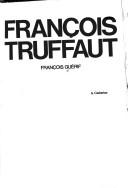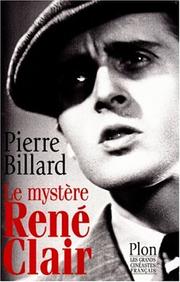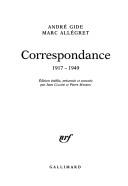| Listing 1 - 10 of 35 | << page >> |
Sort by
|
Book
ISBN: 3836572281 9783836572286 Year: 2019 Publisher: Cologne: Taschen,
Abstract | Keywords | Export | Availability | Bookmark
 Loading...
Loading...Choose an application
- Reference Manager
- EndNote
- RefWorks (Direct export to RefWorks)

ISSN: 02940957 ISBN: 2856011756 9782856011751 Year: 1988 Volume: 18 Publisher: Paris Edilig
Abstract | Keywords | Export | Availability | Bookmark
 Loading...
Loading...Choose an application
- Reference Manager
- EndNote
- RefWorks (Direct export to RefWorks)
Book
ISBN: 9782330159016 2330159013 Year: 2021 Publisher: Arles : Actes Sud ; Institut Lumière,
Abstract | Keywords | Export | Availability | Bookmark
 Loading...
Loading...Choose an application
- Reference Manager
- EndNote
- RefWorks (Direct export to RefWorks)
Artisan consciencieux, amoureux de son métier, le cinéaste Gilles Grangier était une mémoire vivante du cinéma en France. Il nous fait partager son histoire par mille et un petits détails et de nombreusesanecdotes sur ses amis comédiens.Il a connu Raimu, Harry Baur, Pierre Brasseur, Henry de Monfreid. Il a fait tourner Georges Guétary,Bourvil, Louis de Funès, Fernandel, Arletty, Jeanne Moreau, François Périer, et bien sûr, Jean Gabin, qui est devenu son meilleur ami. Il a présenté Michel Audiard à Gabin, a réuni Fernandel et Bourvil, a signéquelques-uns des plus gros succès du box-office français (Le Cave se rebiffe, La Cuisine au beurre).Il est aussi l’auteur de quelques chefs-d’oeuvre méconnus (Danger de mort, Le Désordre et la Nuit)qui lui ont valu l’estime de cinéastes comme Alain Corneau ou Bertrand Tavernier, entre autres.

ISBN: 2259189288 9782259189286 Year: 1998 Publisher: Paris Plon
Abstract | Keywords | Export | Availability | Bookmark
 Loading...
Loading...Choose an application
- Reference Manager
- EndNote
- RefWorks (Direct export to RefWorks)
Motion picture producers and directors --- Clair, Rene --- Clair, René --- France --- Biography --- Motion picture producers and directors - France
Book
ISBN: 067486560X Year: 2014 Publisher: Cambridge, MA : Harvard University Press,
Abstract | Keywords | Export | Availability | Bookmark
 Loading...
Loading...Choose an application
- Reference Manager
- EndNote
- RefWorks (Direct export to RefWorks)
Marcel Carné symbolizes the period, approximately 1930-1945, when French cinema recaptured the creative vitality and prestige it had relinquished almost completely to the American film industry. The first critical biography of this director of classic films, including the epic historical romance Les Enfants du paradis (Children of Paradise), relates the saga of Carné's meteoric rise in the 1930s and his decline from critical grace after the war. Between 1937 and 1945 Carné directed a number of works that are now part of France's cultural patrimony, most notably Le Quai des Brumes (1938), LeJour se lève (1939), Les Visiteurs du soir (1942), and the best known, Les Enfants du paradis (1945). The artistic merit of these films is widely acknowledged; their significance, however, is not solely aesthetic. To know Carné and his films is to know how cinematic art responded to social and political events - to the period of French history that witnessed the Popular Front, the Front's demise, the fall of France, and the Occupation. Edward Baron Turk discloses the incongruities between the director's aesthetic of poetic realism and his professed leftist sympathies; he situates Carné's questionable stance and activities during the Occupation within the broader context of an artist's ethical responsibilities in times of war; and he examines the ramifications of Carné's censure during the postwar purges for the director's subsequent fortunes. Turk's use of the psychoanalytic concepts of androgyny, masochism, fetishism, and primal scene allows us to understand more clearly how Carné thought and worked. Turk also addresses the representations and maskings of homosexuality in Carné's films and the extent to which they have colored film history's often ambivalent assessments of the director. The centerpiece of the book is an extended analysis of what is arguably the most famous and beloved of all French films, Les Enfants du paradis, scripted by the poet-screenwriter Jacques Prévert. The book draws on unpublished correspondence from, among others, Jean Cocteau, François Truffaut, and Simone Signoret, and on interviews by the author with Arletty, Jean-Louis Barrault, Mme. Jacques Prévert, Pierre Prévert, Claude Renoir, Alexander Trauner, Truffaut, and Carné himself. This portrait of Carné thus becomes the portrait of an age, a great age in the history of French cinema, albeit a tragic age in the history of France.

ISBN: 2070775658 9782070775651 Year: 2005 Volume: 19 Publisher: Paris : ©2005 Gallimard,
Abstract | Keywords | Export | Availability | Bookmark
 Loading...
Loading...Choose an application
- Reference Manager
- EndNote
- RefWorks (Direct export to RefWorks)
Book
ISBN: 2882951299 9782882951298 Year: 1994 Publisher: Yens s/Morges : Cabédita,
Abstract | Keywords | Export | Availability | Bookmark
 Loading...
Loading...Choose an application
- Reference Manager
- EndNote
- RefWorks (Direct export to RefWorks)
Book
ISBN: 0773411380 9780773411388 9780773426306 0773426302 Year: 2012 Publisher: Lewiston : The Edwin Mellen Press,
Abstract | Keywords | Export | Availability | Bookmark
 Loading...
Loading...Choose an application
- Reference Manager
- EndNote
- RefWorks (Direct export to RefWorks)
This text tracks changes in French critical theory on the topic of subjectivity and analyzes how these theoretical developments apply to the films of Alain Resnais. It claims that the purpose of Resnais' oeuvre is the transition from modernist tendencies towards absolute mastery and control, to postmodern, deconstructionist movements towards a de-centered storyline and subject.
Book
ISBN: 9782072925726 207292572X Year: 2022 Publisher: Paris : Gallimard,
Abstract | Keywords | Export | Availability | Bookmark
 Loading...
Loading...Choose an application
- Reference Manager
- EndNote
- RefWorks (Direct export to RefWorks)
Sur une photographie ancienne, il est cet enfant sage et mélancolique, déjà penché sur son livre… « Tout au long de notre vie, écrit François Truffaut, nous devenons des personnes différentes et successives, et c'est ce qui rend tellement étranges les livres de souvenirs. Une personne ultime s'efforce d'unifier tous ces personnages antérieurs. » Depuis sa première lettre de jeune cinéphile à Jean Cocteau, en 1948, jusqu'à sa disparition prématurée en 1984, c'est son goût commun pour la litt érature et le cinéma qui traverse cette Correspondance inédite. Truffaut s'y réinvente une famille de cœur auprès de ses écrivains de prédilection (Genet, Cocteau, Audiberti, Louise de Vilmorin), sollicite des figures renommées de l'édition (Jean Cayrol, Marcel Duhamel, Robert Sabatier) et les auteurs qu'il veut adapter à l'écran (Maurice Pons, David Goodis, Ray Bradbury, Henri Pierre Roché, René-Jean Clot…). Ce sont les coulisses de la création, les passions des tournages que l'on découvre ici, mais aussi les remises en question et les zones d'ombre d'un homme pressé, auquel le temps va cruellement manquer… Et c'est à son ami Jean Mambrino, le père jésuite rencontré en 1954 dans le sillage d'André Bazin, que Truffaut adresse ce dernier petit mot, quelques mois à peine avant sa mort : « Bonne année 1984, mon cher Jean. Je remonte la pente, je lis vos poèmes, ils m'aident et vos signes d'amitié me touchent beaucoup, affectueusement vôtre, françois. »
Book
ISBN: 9782818053492 2818053498 Year: 2021 Publisher: Paris : P.O.L.,
Abstract | Keywords | Export | Availability | Bookmark
 Loading...
Loading...Choose an application
- Reference Manager
- EndNote
- RefWorks (Direct export to RefWorks)
Cet ouvrage recueille, pour la première fois, un ensemble de textes et d’entretiens de Marguerite Duras, la plupart inédits ou difficiles d’accès, autour des dix-neuf films qu’elle a réalisés des années 1960 à la fin des années 1980. Depuis La Musica jusqu’aux Enfants, en passant par India Song, Le Camion ou Le Navire Night, Marguerite Duras a rédigé des textes pour des dossiers de presse, des notes de tournage et des déclarations d’intention, des commentaires et des réflexions sur ses écrits, ses films et sur la situation du monde et du cinéma. Pour Marguerite Duras, tout est écriture, d’un bref entretien, d’un commentaire de film au roman, à la pièce de théâtre ou radiophonique, jusqu’au film lui-même
Motion picture producers and directors --- Women motion picture producers and directors --- Duras, Marguerite. --- film --- filmgeschiedenis --- filmregisseurs --- Frankrijk --- twintigste eeuw --- Duras Marguerite --- 791.471 DURAS --- Réalisatrices de cinéma --- Duras, Marguerite --- Oeuvres --- Cinéma --- Motion picture producers and directors - France - Interviews --- Women motion picture producers and directors - France - Interviews --- Authors, French - 20th century - Interviews --- Film
| Listing 1 - 10 of 35 | << page >> |
Sort by
|

 Search
Search Feedback
Feedback About
About Help
Help News
News